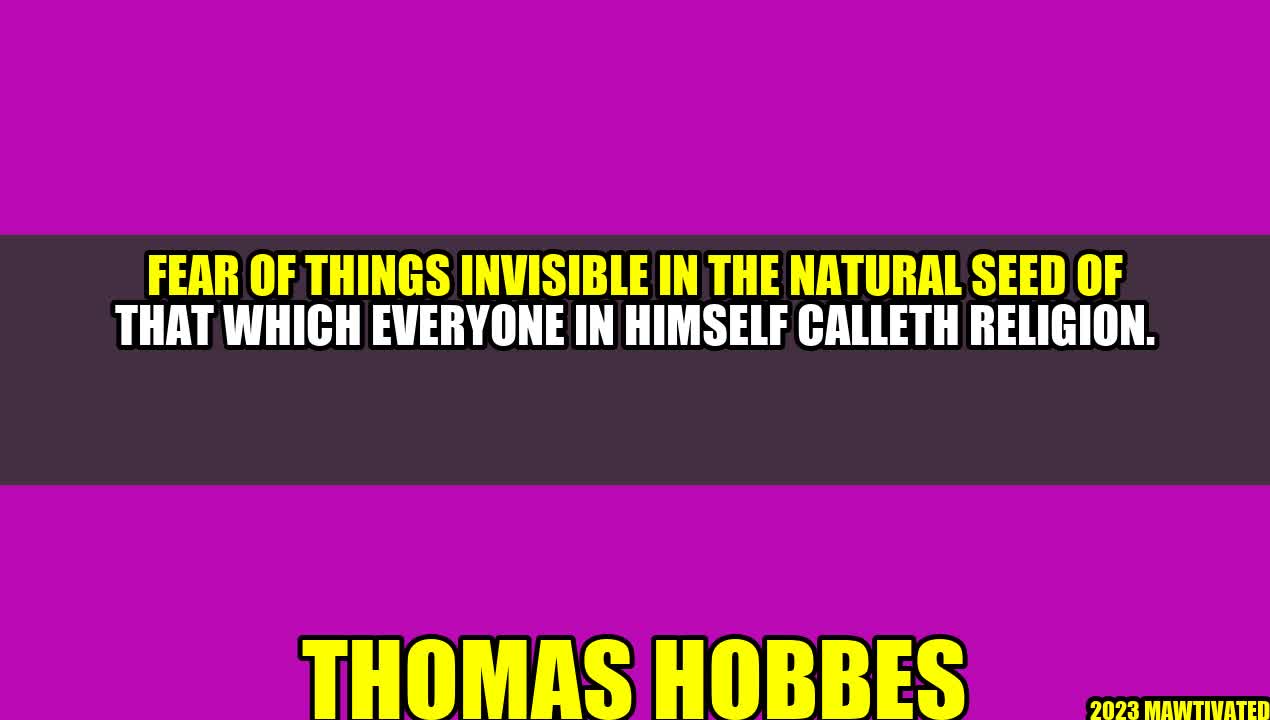Fear of the Invisible: Understanding Religion Through the Eyes of Thomas Hobbes

An Inspiring Story
Once upon a time, a young man named John felt lost and confused about his place in the world. He had always been taught to believe in a higher power, but as he grew older and witnessed the atrocities committed in the name of religion, he began to doubt his faith. One day, he stumbled upon the works of Thomas Hobbes and was inspired by the philosopher’s views on the nature of religion and fear. John realized that it was okay to question his beliefs and that true understanding could come from facing his fears head-on. With newfound courage, he embarked on a journey of self-discovery that ultimately led him to a deeper understanding of himself and his place in the world.
The link between Fear and Religion
According to Thomas Hobbes, fear of the unknown is the natural seed of religion. He believed that humans have an innate fear of things they cannot see or understand, and that religion serves as a way to cope with that fear. This is evident in the many religious practices that involve appeasing unknown or invisible forces through prayer, sacrifice, and other rituals.
I myself have experienced the inseparable link between fear and religion. As a child, I was terrified of the dark and would often stay up all night, too afraid to close my eyes. As I grew older, I found comfort in the belief that a higher power was watching over me, and I would often say a prayer before bed to ease my fears.
Examples
- Many ancient civilizations believed in gods and goddesses who controlled various aspects of the world, such as the sun, moon, and weather. They would offer sacrifices and perform rituals to appease these deities and ensure their continued favor.
- In the modern world, many people turn to religion as a way to cope with the unknown and uncontrollable events in their lives, such as illness, death, or natural disasters.
Background of Thomas Hobbes
“Leisure is the mother of philosophy.”
Thomas Hobbes was a 17th-century philosopher and political theorist who is best known for his works on the social contract and the nature of human nature. He believed that humans are naturally self-interested and violent, and that the only way to maintain a stable society is through a strong, centralized government. His views on religion were heavily influenced by the events of his time, including the English Civil War and the rise of the Enlightenment.
Conclusion
- Religion and fear are inextricably linked, as humans have an innate fear of the unknown.
- Thomas Hobbes believed that religion serves as a way to cope with this fear, and that it is a natural part of the human experience.
- By embracing our fears and questioning our beliefs, we can gain a deeper understanding of ourselves and the world around us.
Overall, the link between religion and fear is a complex and multifaceted issue that has been debated for centuries. By exploring the works of Thomas Hobbes and reflecting on our own experiences with religion and fear, we can gain a better understanding of this relationship and its importance in our lives.

Curated by Team Akash.Mittal.Blog
Share on Twitter
Share on LinkedIn